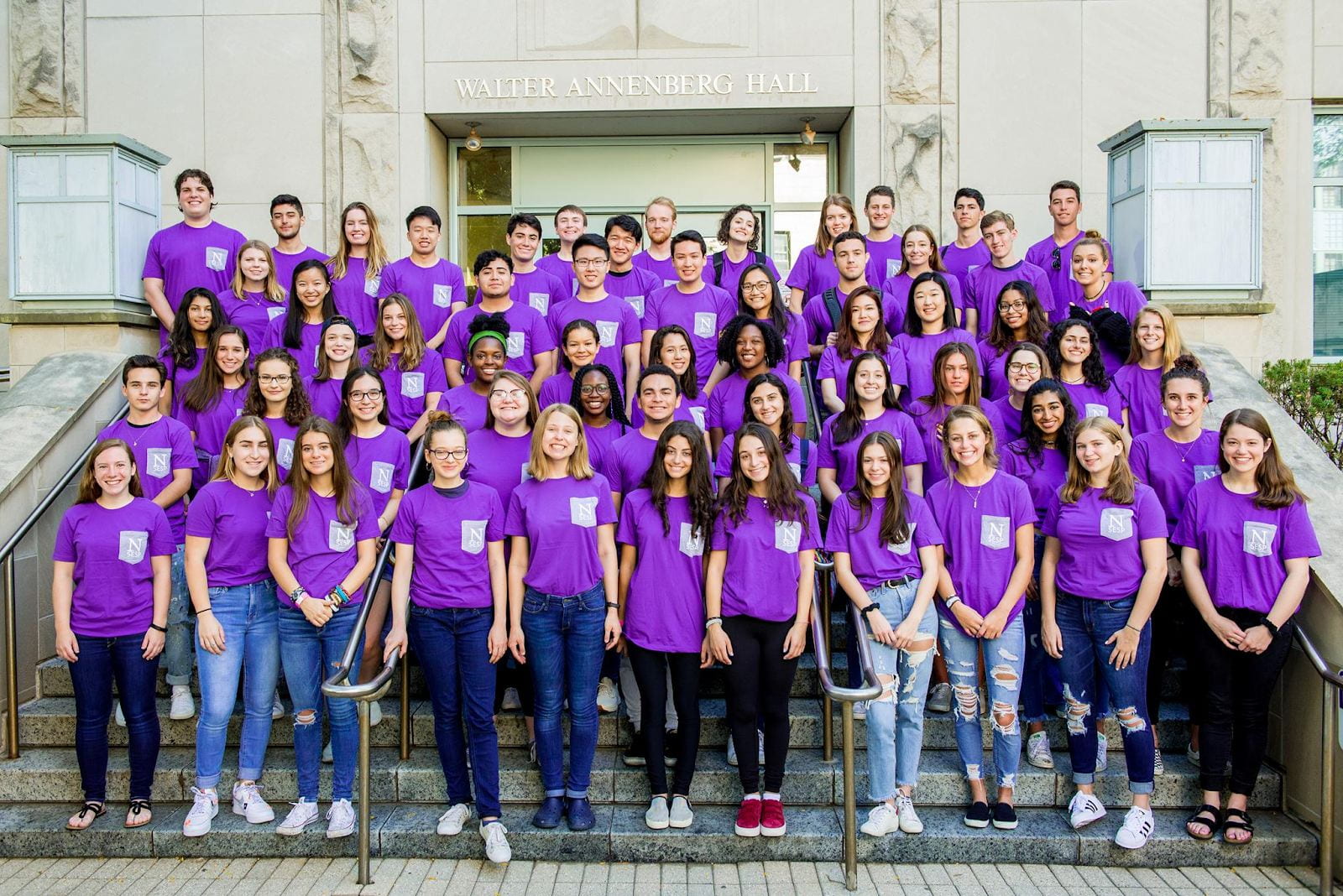I often get a few curious looks when I tell people I study Social Policy in the School of Education and Social Policy. When people ask me what the School of Education and Social Policy (SESP as we call it) is, I often like to respond by saying, “it’s a family.” As the smallest school at Northwestern, a close-knit family is often what the SESP community feels like for us SESP students.
As a big fan of politics and law, I applied to almost every college under political science, government or even law majors. Although Northwestern does offer incredible political science and legal studies majors, I applied to Northwestern as a Social Policy major as it not only had a curriculum involving law and politics, but also contained the tools needed for those wanting to work in the creation of policies at the private and government level.
I first learned about SESP through my involvement in Northwestern Academy, a program for Chicago Public School students of low income, first generation, or minority backgrounds, created by SESP over 6 years ago. My early exposure to SESP and the supportive community within the school convinced me to apply to SESP. As the “change-makers” on-campus, students, faculty, and staff in SESP constantly engage in conversations seeking to improve life for everyone at Northwestern and society as a whole. Their mission and community appealed to me as an applicant; I felt like I would benefit from their community. That small school community offered the best balance between a smaller family setting within the larger NU community as a whole. Looking back on my first year, I can confidently say that SESP does as they say and more.
Like any new college student, my first year was filled with ups and downs. However, SESP both as a school and community was always there to support me, especially during my downs. I remember one October day I showed up to the SAO (SESP’s student affairs office) and spoke with my adviser, Ken. I felt distressed and panicked about my psychology class midterm. I realized didn’t like psychology even though I had initially intended to double major in psych. Ken patiently heard me vent about my psychology midterm and also sat down with me to discuss my career interests. With his help, I realized that I could drop the class especially since it wasn’t related to my actual fields of interest.
Given the small community of SESP, SESP drives to help students find career and academic paths that are personal and engaging for students. No matter how specific your interest may be, SESP wants you to have the tools to change the world within that field. As a result, I also learned early on about our legal studies minor (in Weinberg), an option I didn’t know existed, and declared it. Given the 42 credit graduation requirement in SESP, SESP makes it possible for students to be able to pursue other interests within SESP (Civic engagement certificate) or even outside in another school like Weinberg (double major/minor).
With class sizes usually being on the smaller-side (Northwestern has an overall 6:1 faculty ratio) and taught in a “lecture/seminar” style, some of my most interesting and engaging discussions have happened in classrooms at Annenberg Hall, homebase for SESP. With readings and work being engaging for students not only to be applicable in class but in society, SESP is a lifestyle for some.
Even outside the classroom, some of my favorite conversations at Northwestern have occurred within SESP. Ranging in topics of politics with Jasmine from the SAO and other students, or even talking about pop culture with Dean Olson and SESP advisers, Caitlin and Shelena. We as students from SESP, really enjoy engaging in all types of deep conversations with each other more than anything.
As I move forward at Northwestern, I’m excited for what else there is to come in SESP. Additionally, I can’t wait to gain professional experience through SESP’s required practicum program (8 week internship of your choice; applicable to your field of study). With different practicum opportunities offered in many cities and companies across the country, I hope to work in a political/law firm or even a government agency in Washington D.C. With so many interesting courses in SESP from Marriage 101 to Adulthood and Aging and Social Policy and the Human Services, I know the next 3 years will be filled with so many more incredible and experiences.
#SESPLOVE- Danny

Glad to hear sesp is still great years after our kids graduated. Good luck Kiddo #ProudWildcatAlum